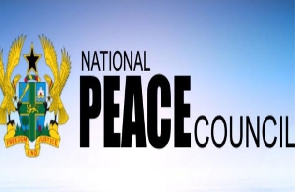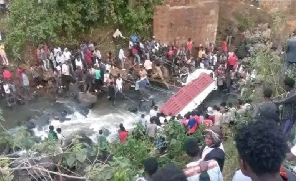The Ashanti Regional Secretariat of the National Peace Council (NPC) has disclosed that it is dealing with fifty-eight (58) different conflicts with chieftaincy constituting the highest prevalence.
Disclosing this on the Ultimate Breakfast Show, the Ashanti Regional Executive Secretary of the National Peace Council Rev. Emmanuel Badu Amoah noted that the numbers exclude the over forty cases being solely handled by the Regional House of Chiefs.
“The Ashanti Region is peaceful but there are pockets of conflicts and clashes in some communities. We are dealing with 58 issues at different levels of escalation,” he divulged.
Rev. Badu Amoah indicated that the National Peace Council was currently handling over 700 cases nationwide dispelling the notion that the highest number of conflicts existed in the Northern part of Ghana.
He insisted that the conflicts up north had only gained prominence in the media because of the reactionary approaches of the feuding factions which have often turned violent.
“The last time we met as a peace council, we realized that there are more conflicts here in the South than in the North. The people and different contexts involved and the reactive approach makes people think there are more conflicts in the north,” he pointed out.
He also commended the region’s leadership for embracing the traditional code that governs and safeguards community cohesion.
“One thing in the Ashanti Region is that we have a structured system to deal with conflicts. Based on the deep Indigenous approach of resolving conflicts, when ‘ntam kesse’ comes in, it ends everything,” he explained.
Rev. Emmanuel Badu Amoah indicated that unlike the Peace Councils of other countries appointed by the government, Ghana’s system of allowing stakeholder bodies to appoint their persons to constitute eminent members of the NPC has insulated the Council from the notion of political influence.
Click to view details



Regional News of Saturday, 24 August 2024
Source: starrfm.com.gh

















